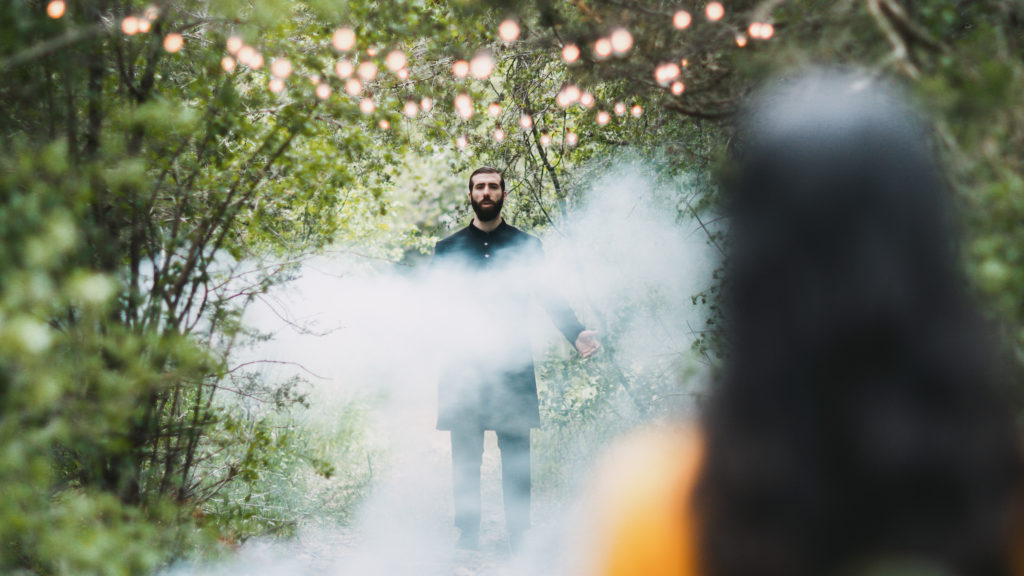
I was away from Canada for almost a decade.
In 2019, I graduated from the Curtis Institute in Philadelphia and moved back to my hometown of Toronto to take part in the Canadian Opera Company’s Ensemble program. Then COVID hit during the COC Ensemble work— I also had gigs scheduled in the U.S.
At first, performances were postponed—remember—it all started with postponing, and then as things worsened, they were all cancelled. We kept thinking we were getting back to live performances soon, and then a year went by. Now, my attitude is—I’ll believe it when I see it.
COVID has been a time of loss for me and my family.
In November, my dad passed from COVID. Then, my mentor—an Armenian priest— passed from COVID (in Lebanon). Then, my Uncle passed on from COVID (in Los Angeles). The priest and mentor who passed on had an incredible impact on my life.
When I was a young teenager, I had a lot of energy, and the community school I was enrolled in didn’t have a clue how to deal with me. This priest recognized that my energy needed to be harnessed. He asked the chorus director at his church to teach me a solo—back then, I had a very high-pitched voice. And then, all of a sudden, my voice dropped. Everything that was up there in tone came way down.
In the church choir, I learned to sing a lot of chants and hymns—and I loved singing in church. In fact, I became so passionate while singing that sometimes I’d be asked to take it down a notch. I became overwhelmed by the music.
At around fourteen years old, that same priest asked my father if he could help find me a voice teacher at the Royal Conservatory of Music… The priest not only introduced me to classical music education at the conservatory of music, but he helped fund my lessons from his own paycheck.
Just singing and performing has never been enough for me.
I love the homework, the research, the history, the process, the practice, and the rehearsal—I love everything leading up to the performance, and that makes the entire process just as rewarding as the performance itself. One of my teachers at the Curtis Institute told us— No one cares what you sounded like yesterday at practice.
Shortly before COVID, the priest who supported me so early in my career went to serve at an orphanage at the Holy Sea of Cicilia in Lebanon. Then, during the pandemic, he became very sick and went to emergency, where it took more than two days for him to be admitted because the hospital was overwhelmed. I Facetimed once he’d been admitted. I could tell he was in poor health, but I had no idea that two days later he would pass away. Because we’ve all been living in our bubbles, I still haven’t had a chance to absorb these losses. For me, these figures in my life are not gone—they’re still there but in a different form.
A few months later, out of the blue, my agent got in touch, and said that Against the Grain Theatre was thinking of asking me to sing the role of Death in Sāvitri. The music was really cool. I can do this, I thought. I want to do this— I said yes.
I’m a spiritual person— faith has always been at the core of my being.
I happen to have been brought up in the Armenian church. My faith allows me to be open and accepting instead of closed. I have friends who find that hard to understand, but for me, it’s simple. In the context of Sāvitri, the text is open and about love. It’s beautiful poetry, and it’s important to read between the lines—to see that philosophical parable for us to interpret and to learn from.
Opera is its own world, and I love that you can get so lost in it. You can be enchanted by opera; fall in love with it. And every now and then you have to come back to reality. For me, I love to work. And everything else feels like work, but opera never has. It’s a calling. It’s me. It’s what I do. When I sing, I serve.
Art serves people, and feeds the soul. And it’s my calling to serve.
When a North American audience is watching an Italian opera, the majority of people don’t understand the lyrics, but they do get something from it, from hearing it, experiencing it. Spirituality doesn’t have to come in the form of a text or a book…
Sāvitri conquers Death…. “one has conquered him, one that knows life,” the lyrics in the opera tell us. For me, Death is nothing but an illusion. The soul continues onward… on the journey… It’s not for me to say where it goes. I guess that’s my own illusion.
Thank you to Vartan for contributing his artistic voice and being a part of Sāvitri. Read Vartan’s bio here.
Follow Against the Grain Theatre on Facebook, Instagram, and Twitter for up-to-date news about Sāvitri.
